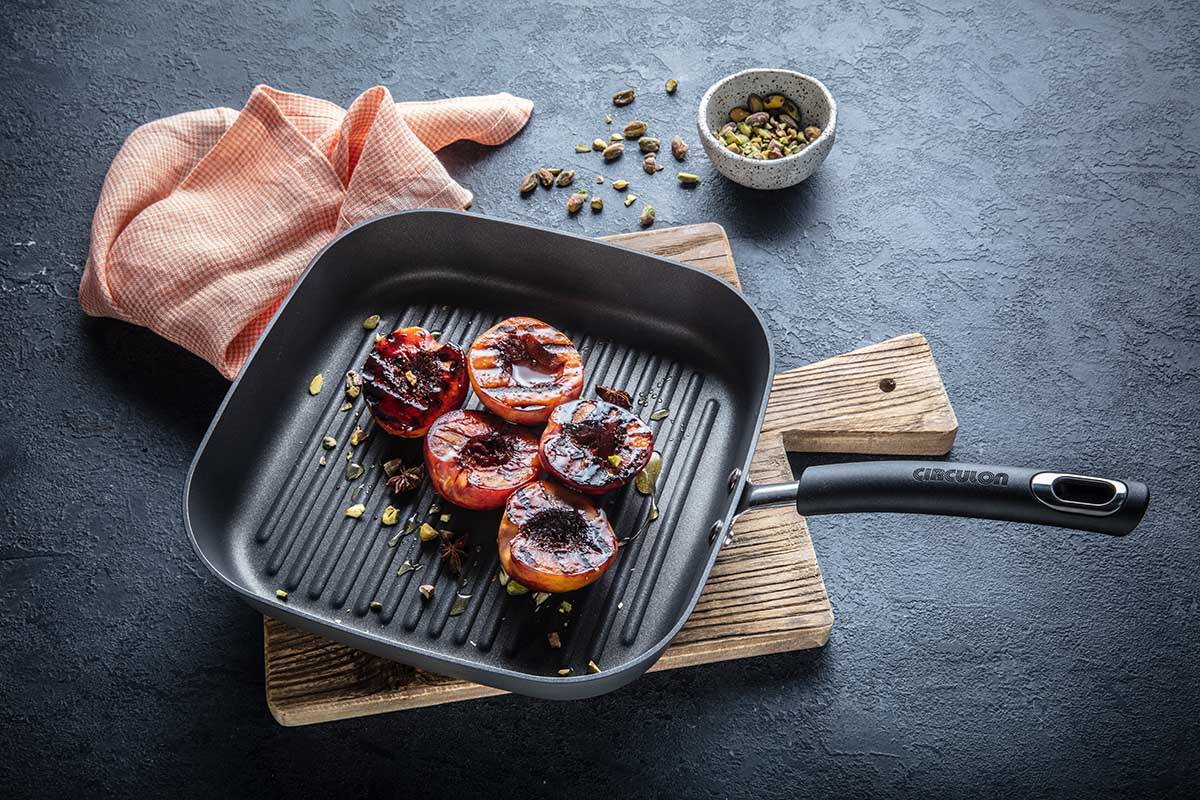Maintaining a spotless and sanitary countertop in a commercial kitchen is not just about appearances; it is a critical step in ensuring food safety and hygiene. These surfaces are exposed to a variety of tasks ranging from food preparation to the spillover of ingredients. Cleaning a commercial kitchen countertop effectively can prevent cross-contamination and prolong the life of your surfaces.

Why Cleaning Your Commercial Kitchen Countertop is Crucial
In any kitchen, especially a commercial one, cleaning the countertop is essential. Germs and bacteria can rapidly multiply on these surfaces, leading to potential foodborne illnesses. Regular cleaning not only keeps your kitchen hygienic but also ensures that your workspace is welcoming, safe, and efficient for chefs and kitchen staff.

Choosing the Right Cleaning Supplies
Before diving into the step-by-step cleaning process, it is paramount to have the right cleaning supplies. The materials and chemicals you use can significantly impact the efficiency of your cleaning. Below are some popular types of countertops and the cleaners best suited for them:
For Stainless Steel Countertops
Stainless steel is a popular choice for commercial kitchens owing to its durability and resistance to heat. However, it is prone to showing fingerprints and smudges. Use a non-abrasive cleaner and a microfiber cloth for the best results.
For Granite Countertops
Granite countertops are known for their elegance and durability. When cleaning granite, avoid acidic or abrasive cleaners as they can damage the sealant. Opt for a pH-balanced cleaner or a mixture of mild soap and warm water.
For Laminate Countertops
Laminate countertops are relatively low-maintenance but can be prone to scratches. Mild dish soap and warm water, along with a soft cleaning cloth, are typically sufficient to keep laminate surfaces clean.

Step-by-Step Guide on How to Clean a Commercial Kitchen Countertop
1. Prepare the Area
Begin by removing all items from the countertop, including utensils, ingredients, and appliances. This step ensures that you can reach every part of the surface during cleaning. For more details on organizing your kitchen, refer to our Kitchen Organization guide.
2. Dust and Wipe Down the Surface
Using a dry cloth, dust off any loose debris and crumbs. This basic step prevents any dirt from scratching the surface during the cleaning process.
3. Scrub with Appropriate Cleaner
Depending on the type of countertop, apply the suitable cleaner. Use a clean cloth, sponge, or brush to scrub the surface, paying extra attention to areas with visible stains or stuck-on food. Always scrub in a circular motion to avoid streaks.
4. Rinse with Clean Water
After scrubbing, use a separate clean, damp cloth to rinse the surface, removing any residual cleaning solution. This step is crucial to ensure no chemicals are left behind, which could potentially come into contact with food. Learn more at Rinse with Water.
5. Dry the Countertop
Finally, use a dry cloth to wipe down the countertop, ensuring there is no lingering moisture. Damp surfaces can attract bacteria and affect the durability of the countertop material.

Maintaining Your Commercial Kitchen Countertops
Regular maintenance is key to prolonging the life of your commercial kitchen countertops. Follow these tips to keep your surfaces in top-notch condition:
Daily Cleaning Routine
Engage in daily wipe-downs with a mild cleaner to prevent the buildup of grime and bacteria. Promptly clean up spills to avoid permanent stains. For a comprehensive guide, check our Daily Cleaning guide.
Weekly Deep Cleaning
Conduct a more thorough cleaning each week, focusing on the corners and edges of the countertop where dirt can accumulate. Use the specific cleaning agents recommended for your countertop material. For more best practices, visit Martha Stewart's Guide.
Polishing and Sealing
Consider polishing and resealing granite and other natural stone countertops every few months to maintain their glossy finish and stain resistance. Use polishes appropriate for the material to restore luster.
Common Mistakes to Avoid
While cleaning might seem straightforward, there are common mistakes that can undermine your efforts:
Using Abrasive Cleaners
Avoid abrasive cleaners like scouring pads on delicate materials such as granite or laminate. They can scratch and dull the surface.
Skipping the Rinse
Always ensure that you rinse off all cleaning solutions. Leaving chemicals on the countertop can lead to contamination and surface damage.
Neglecting the Edges
Do not forget to clean the edges and corners of your countertops. These areas can harbor hidden dirt and bacteria.
FAQs
What is the best cleaner for commercial kitchen countertops?
The best cleaner depends on the material of your countertop. For stainless steel, a non-abrasive cleaner is ideal. For granite, use a pH-balanced cleaner.
How often should a commercial kitchen countertop be cleaned?
Commercial kitchen countertops should be cleaned daily and deep-cleaned weekly. Immediate cleaning after spills can prevent stains and bacteria buildup.
Can I use vinegar to clean a granite countertop?
It is best to avoid vinegar for granite countertops as its acidity can break down the sealant over time, making the stone prone to staining.
Conclusion
Knowing how to clean a commercial kitchen countertop effectively is essential for maintaining a hygienic and functional kitchen. By choosing the right cleaning supplies and following a thorough cleaning routine, you can ensure that your countertops stay in excellent condition. Regular maintenance and avoiding common cleaning mistakes will further extend the life of your surfaces, ensuring a safe environment for food preparation.
For more information on the importance of cleanliness in commercial kitchens, visit Food Safety: Keep Your Kitchen Clean.
As an Amazon Associate, I earn from qualifying purchases.





Leave a comment
This site is protected by hCaptcha and the hCaptcha Privacy Policy and Terms of Service apply.